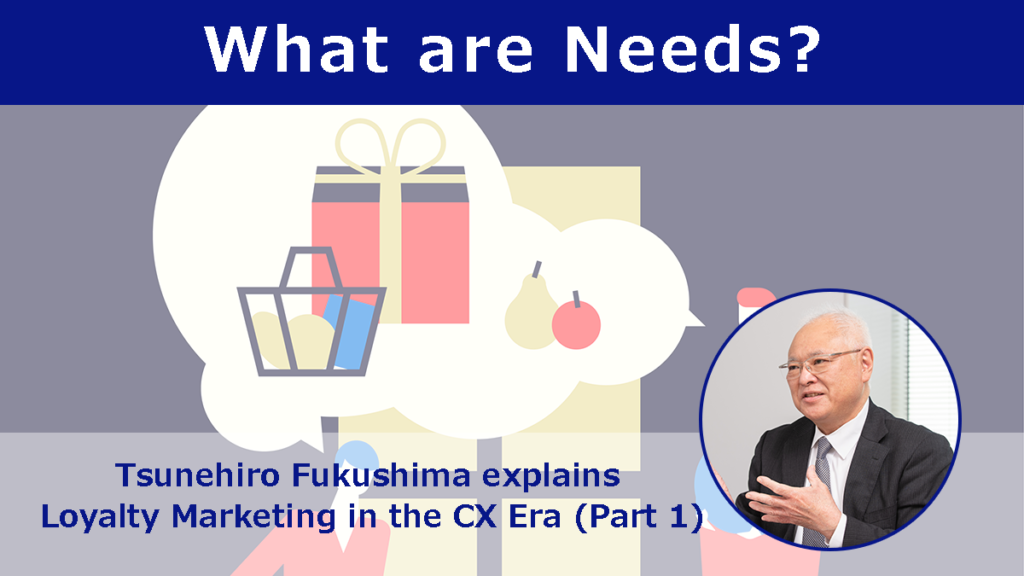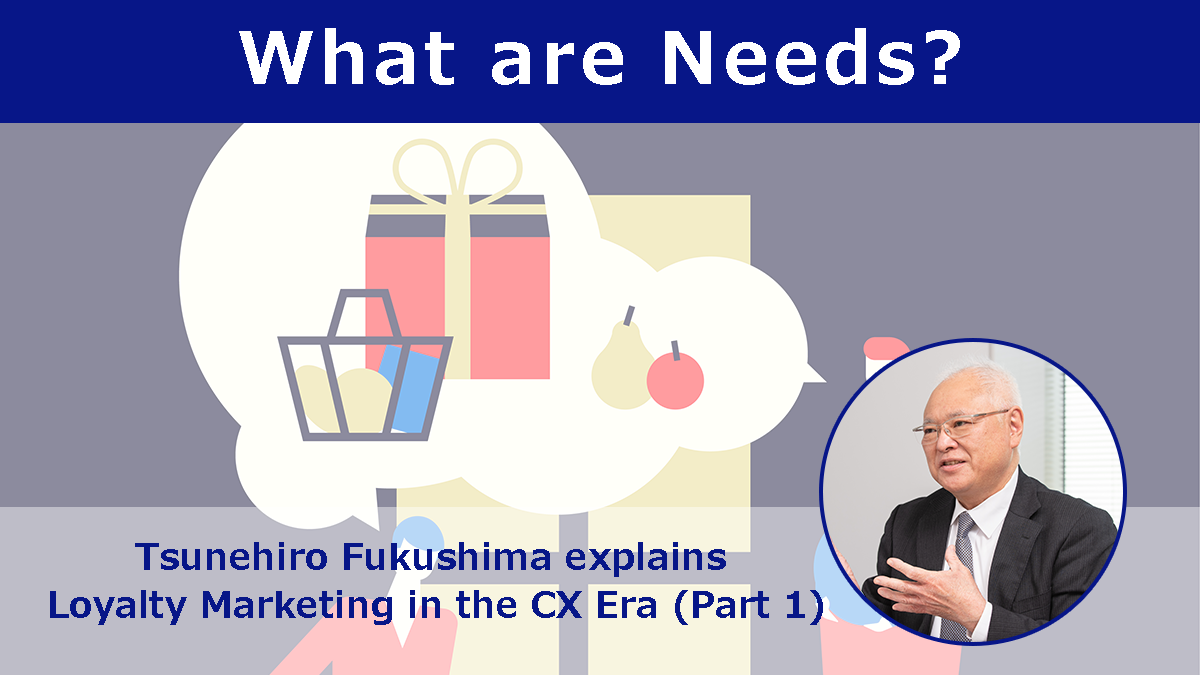What are needs? It is an essential and critical concept in marketing, but it may be a little difficult to explain what it means. Needs in English means “wants” or “desires”. Kotler describes needs as a state of unfulfilled fulfillment that is necessary for a person’s life. Unfulfilled customers have some desires. In the marketing world, it is common to use the term “needs” to refer to the gap between the customer’s ideal state and the current situation, i.e., the desire to “want to do something”.

Contents
Understand the difference between needs and wants
A term similar to “needs” is “wants”, but this is a state in which the customer is seeking a “means” to achieve an ideal state. For example, if a customer says, “I want a cleaning robot,” this is a want (= means). The customer’s needs may be: “I want to save time on housework and spend it on other things,” “I want to clean my room more easily,” and so on. In most cases, the customer’s word is “wants”, so it is important to discover and understand their essential needs.
Kotler defines marketing as ”to make a profit by meeting customer’s needs”. To explain this a little more concretely, it can be described as the activity of acquiring profit by understanding the needs of target customers, creating value to satisfy those needs, and delivering that value to customers.
In psychology, we believe that needs (i.e., desire) are always behind human behavior, but people do not always have a clear perception of their own needs. In the marketing world, needs that customers are aware of are called apparent needs, while needs that they are not aware of or cannot express well are called latent needs.
Past and Future Marketing
Customers select products and services that they feel are likely to fulfill their needs. Therefore, marketing frameworks treat satisfaction of customer needs as a key theme. While marketing has been and will continue to be an activity to satisfy needs, it is important to note that the needs to be satisfied for the same product are very different between marketing in the past and marketing in the future.
For example, consider the case of a certain coffee beverage. Until now, the needs have been “to quench thirst” and “to taste delicious flavors. The needs that have been considered here are whether the quality of the product satisfies the needs, and can be said to be very product-oriented needs.
On the other hand, what must be considered in future marketing is not whether a need can be satisfied by consuming the product once. Customers who have had their basic needs satisfied are now looking to satisfy higher-order needs. Customers’ values and preferences have become very diverse as they actively collect and transmit information themselves thanks to the improvement of Internet technology and the spread of smartphones. In these times, for example, there is a limit to trying to satisfy the needs of coffee drinkers with the taste itself. It is becoming very important to build a better long-term relationship with customers, in other words, to form loyalty.
The Essence of Loyalty Marketing in ”Marketing 4.0”
Kotler clearly states this change in ”Marketing 4.0”. In an age when customers share information about their purchases with other customers and recommend each other, companies need to offer products that satisfy their customers’ desire for self-fulfillment and develop strategies that will encourage customers to promote their products. Customer needs have become lofty, such as the desire to participate in social action programs or to make the world a better place. Companies must pay more attention to these needs, understand them, and consider how they can be met through their products and services. This is the essence of loyalty marketing in Marketing 4.0.
In the previous example, we must be aware of needs deeper than the simple need of thirst. For example, it is necessary to import fair trade coffee beans as raw materials and to promote this initiative to customers skillfully. If you can make customers feel that they can participate in activities to make the world a better place by purchasing this product, or that they can support a company that is involved in social contribution activities, you can satisfy their desire for self-actualization.
Satisfaction with these needs has never been considered within the framework of conventional marketing. Marketing to date has dealt with sales, advertising, and promotion, and has focused solely on satisfying needs with goods. However, in order to be chosen by customers in the age of loyalty marketing, we must aim to satisfy their desire for self-fulfillment. Understand that needs are changing dramatically from material to spiritual. The key to achieving competitive advantage lies in marketing that focuses not only on customer satisfaction (CS) but also on customer experience (CX).
As Kotler explained in “Marketing 3.0”, customers are holistic beings, customers these days will not choose products from companies that handle raw materials that exploit producers or companies that do not emphasize communication, no matter how good the product itself may be. Customers are increasingly looking at whether they can trust and like the company when making decisions.
Tsunehiro Fukushima will direct your marketing efforts
At transcosmos, we offer marketing strategy proposals in line with the 5A concept advocated by Philip Kotler. For actual proposals, Tsunehiro Fukushima, the author of this article, supports loyalty marketing optimized for the digital age. First of all, please tell us your company’s concerns.
Tsunehiro Fukushima
Corporate Executive Officer, transcosmos inc.
Director, Japan Marketing Association
After completing graduate studies at Tokyo Institute of Technology, he joined Ajinomoto Co., Inc. He then worked for GE Capital, Mitsubishi Corporation, Gurunavi, Inc., and Medical Data Vision Co., Ltd., where he served as head of big data business and marketing. His areas of expertise include new business and new product development, brand theory, medical business, and loyalty marketing. At transcosmos, he is in charge of marketing-related business development and is the exclusive provider in Japan of the 5A diagnosis introduced in the book “Kotler’s Marketing 4.0”.

